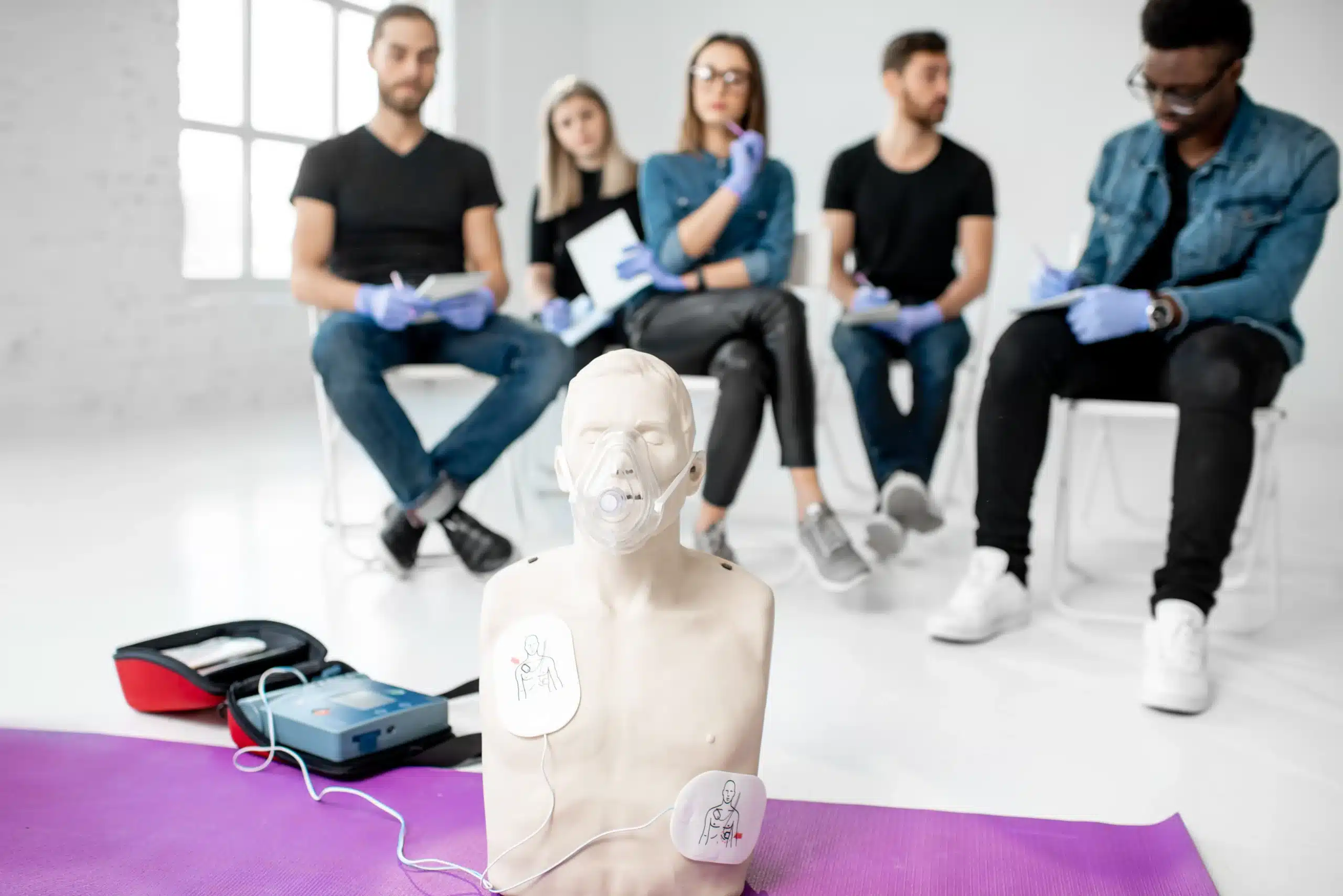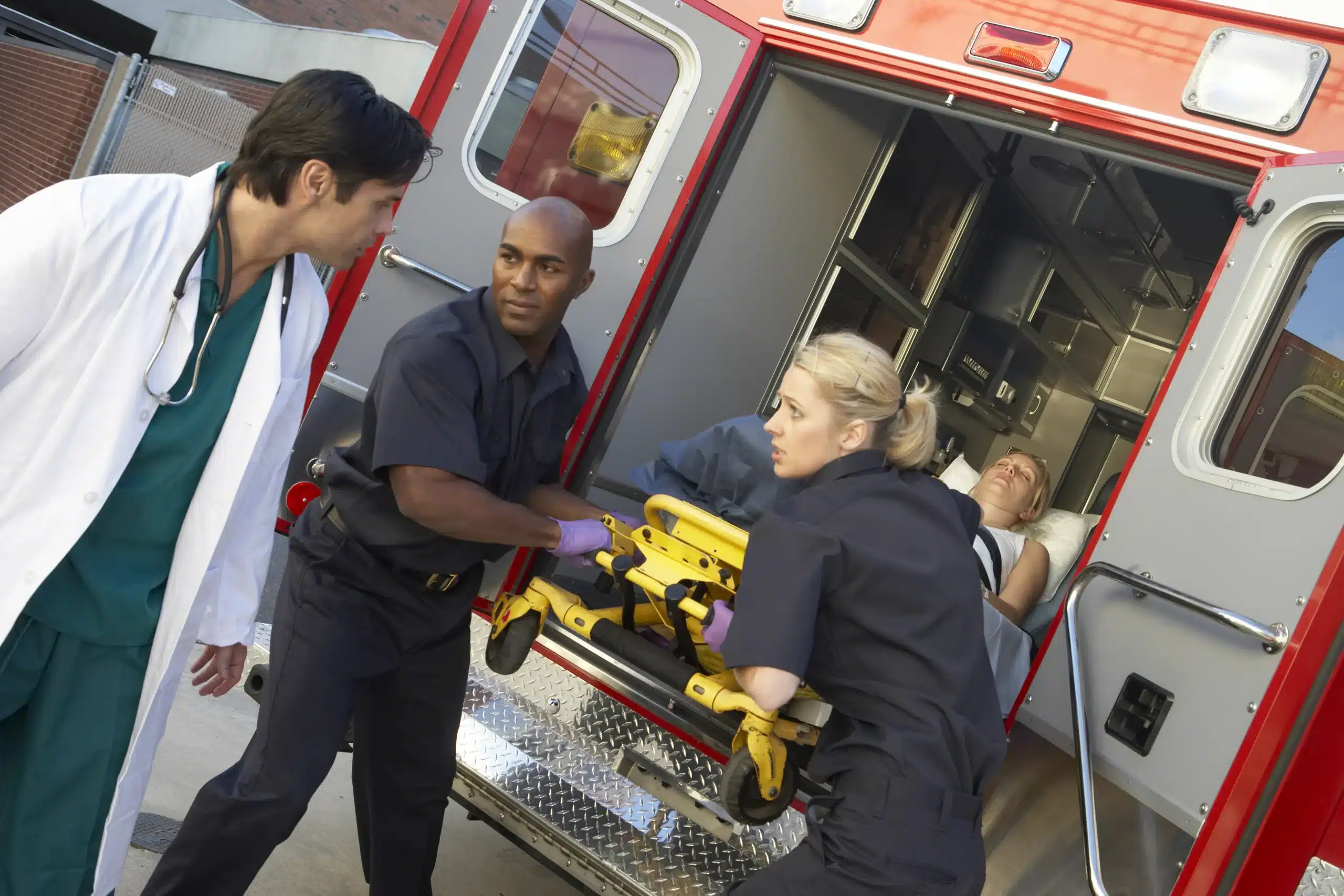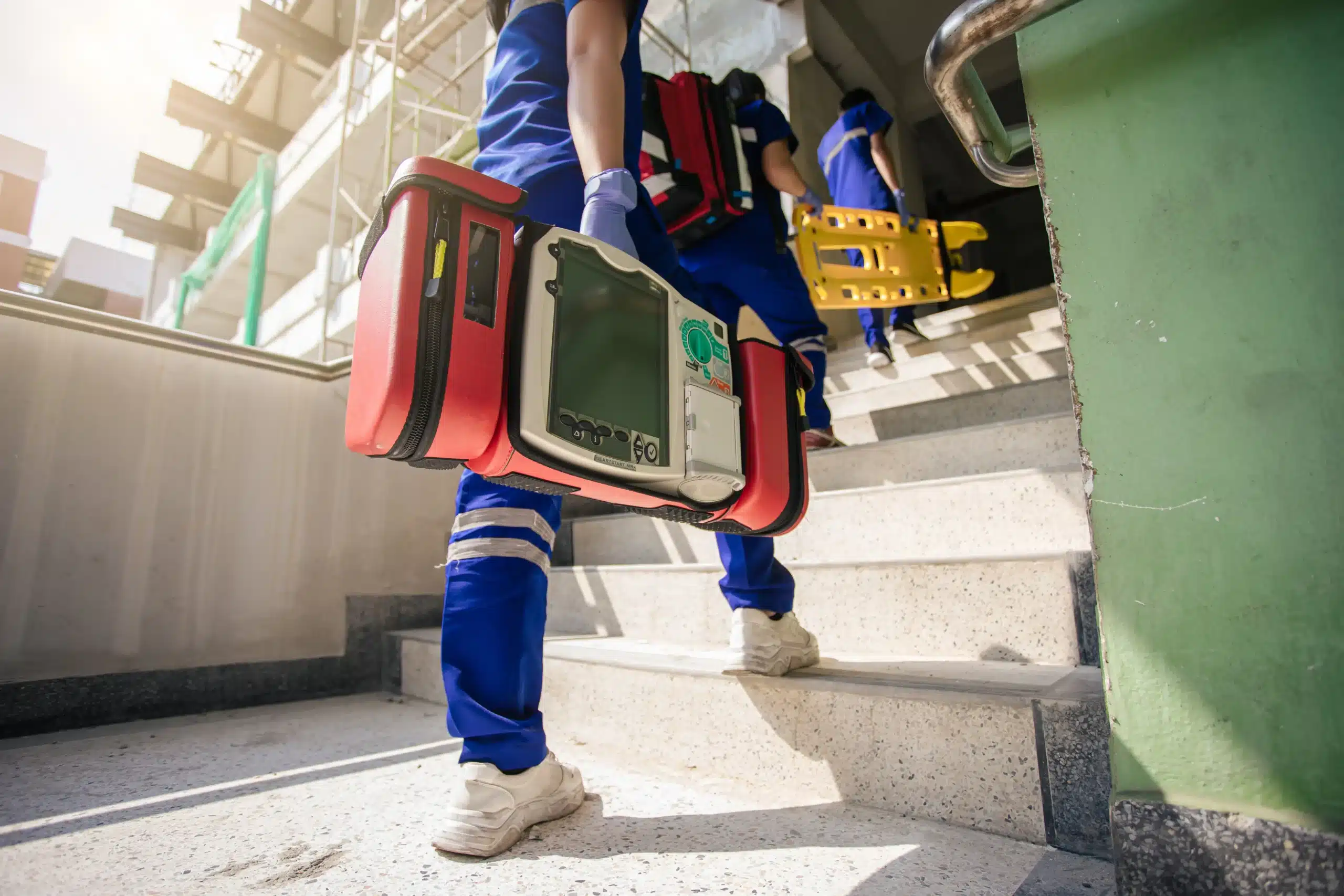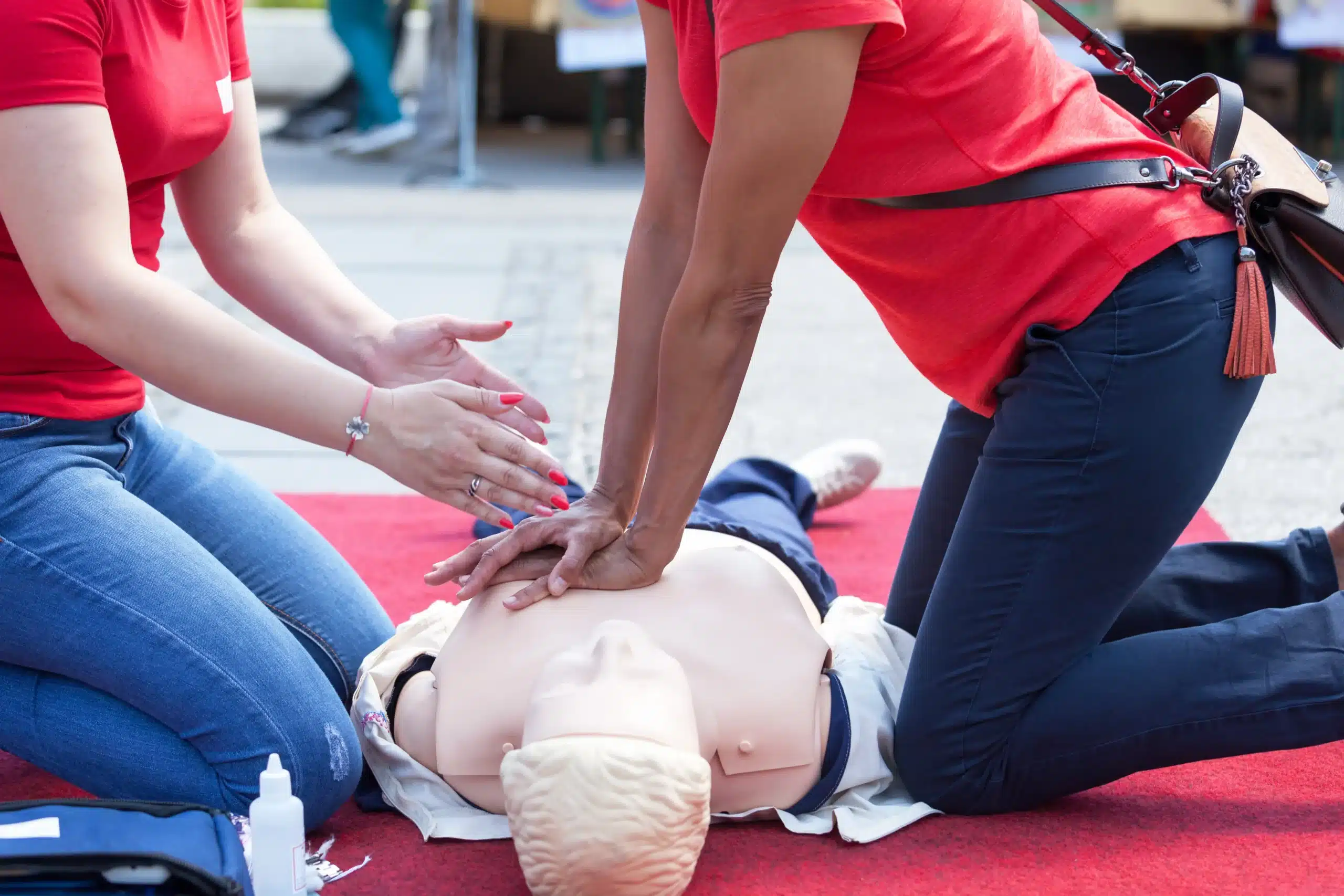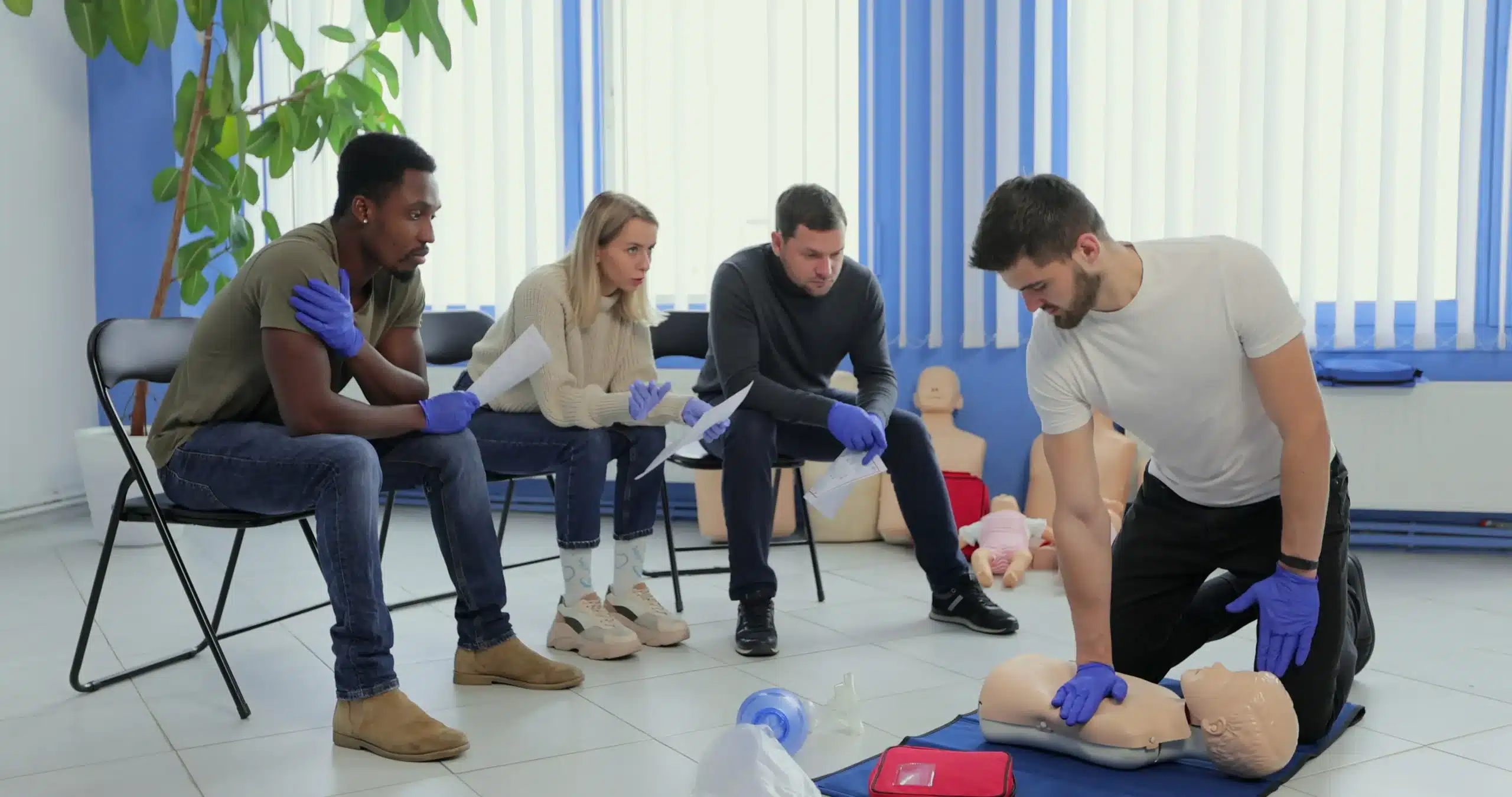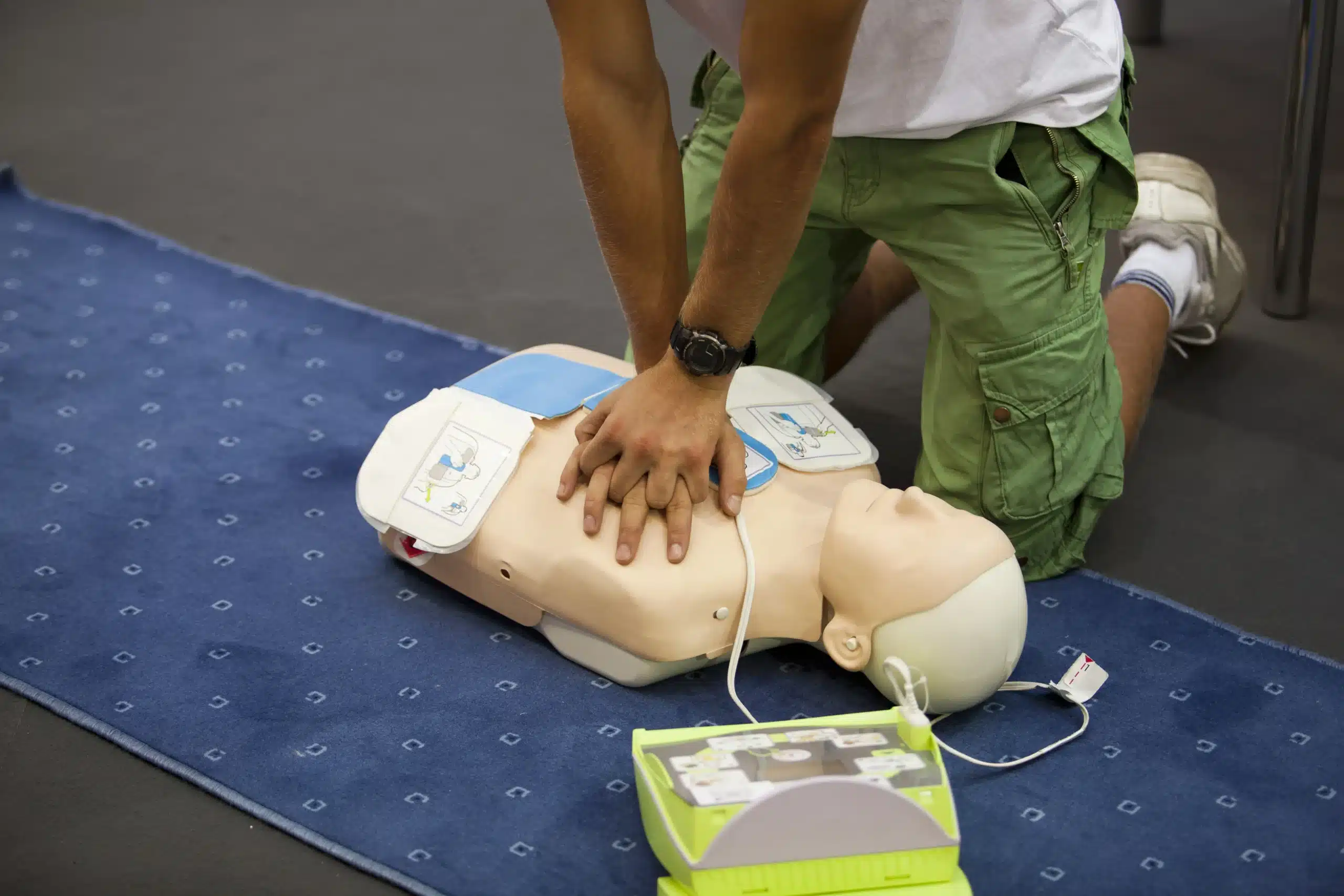Need to renew your BLS certification in Benicia, California, but feeling overwhelmed by the process? Don’t worry, you’re not alone. Many people find navigating BLS renewal in Benicia challenging, from understanding the requirements to finding a course that fits their busy schedule. This guide is here to help. We’ll break down the steps, explore local options like Martinez CPR Classes, discuss online resources, and offer practical tips for overcoming common renewal challenges. Let’s make this process as stress-free as possible.
Key Takeaways
- BLS skills are essential for healthcare providers: High-quality CPR, using a BVM, and relieving choking are fundamental skills covered in BLS training and crucial for responding to medical emergencies. Stay current with the latest guidelines by renewing your certification every two years.
- Several BLS renewal options exist: From online self-paced courses to blended learning and traditional classroom settings, find a format that fits your schedule and learning preferences. Consider factors like cost, location, and course content when making your decision.
- Preparation streamlines BLS recertification: Track your certification’s expiration date, gather necessary materials, and refresh your knowledge of key concepts before your renewal course. Utilize available resources like practice sessions and online communities to maintain your skills and stay informed.
What is BLS & Why Does It Matter?
BLS Explained
Basic Life Support (BLS) certification is crucial for healthcare providers and first responders. It gives you the skills to respond to life-threatening emergencies, like cardiac arrest. BLS covers core techniques such as high-quality CPR, using a bag-valve-mask (BVM), and relieving choking. These skills are the foundation of advanced life support and can significantly improve a person’s chances of survival. BLS certification demonstrates your commitment to patient safety and high-quality care. At Martinez CPR Classes, we offer comprehensive BLS training that meets the latest American Heart Association guidelines.
Renewal Requirements & Timelines
BLS certifications typically expire every two years. The expiration date is printed right on your BLS certification card. To renew your certification, you must take a BLS renewal course with an AHA-certified instructor. If your credentials are still valid (at least 30 days from expiring), an online renewal course can help you maintain your certification. Don’t let your certification lapse—stay current with your BLS skills and knowledge to provide the best possible care. Martinez CPR Classes offers a low price guarantee for the best value on your BLS renewal.
Find BLS Renewal Courses in Benicia
Several organizations offer BLS renewal courses in and around Benicia, giving you options to find the best fit for your schedule and learning style.
Martinez CPR Classes
Martinez CPR Classes offers American Heart Association courses, including BLS renewal, serving Martinez, Port Chicago, and Benicia. They focus on providing affordable training and have convenient class schedules. Visit their website for BLS course information and registration.
American Red Cross
The American Red Cross provides BLS renewal courses online and in person. This flexibility lets you choose the format that works for you, whether you prefer self-paced learning or a traditional classroom. They also offer streamlined recertification for an efficient renewal process.
Benicia CPR Training Center
The CPR Training Center of Concord offers AHA-authorized courses, including BLS for healthcare providers, in Benicia. Their focus on advanced cardiovascular life support training makes them a solid option for professionals seeking comprehensive renewal.
CPR Education
CPR Education offers various CPR and first-aid training classes in Benicia. Along with BLS renewal, they also sell AEDs at discounted prices for Benicia residents. This is helpful if you need to update your equipment while renewing your certification.
BLS Renewal Costs in Benicia
Understanding BLS renewal costs upfront helps you budget effectively. Several factors influence the final price, so let’s break them down.
Online Course Fees
Online BLS renewal courses offer a flexible learning experience. These courses typically cover the cognitive portion of BLS and can range from $12 to $50, depending on the provider and included materials. For a budget-friendly option, check out Martinez CPR Classes and their low price guarantee.
In-Person Skills Session Costs
The in-person skills session is essential for demonstrating your BLS proficiency. This session typically lasts about three hours and includes hands-on practice and a skills test. The American Heart Association website offers more information on BLS courses. Costs for the in-person portion vary, so contact your chosen provider for specifics.
Additional Materials & Expenses
Remember to factor in potential additional costs. Some providers require a separate purchase of a pocket mask or other materials. While some courses include all necessary equipment, others might charge an extra fee. Also, consider travel expenses to the in-person skills session, especially if you’re coming from Port Chicago or other nearby areas. Group discounts are available at Martinez CPR Classes if you’re coordinating training for a team.
Choose Your BLS Renewal Course Format
Finding the right BLS renewal course format is key to a smooth and successful recertification. Let’s break down the most common options so you can choose what works best for your schedule and learning style.
Online Self-Paced Courses
Online self-paced BLS renewal courses offer maximum flexibility. You complete the coursework at your own speed, pausing and reviewing as needed. This format is perfect if you have a busy schedule or prefer to learn independently. You’ll typically watch videos, read materials, and complete quizzes online. Keep in mind that most online courses require an in-person skills check and testing session before your certification is officially complete.
Blended Learning
Blended learning combines online convenience with hands-on instruction. You’ll complete the cognitive portion of the course online, then attend a shorter, in-person session to practice your skills and take the required exam. This format offers a good balance for those who appreciate both independent study and face-to-face instruction.
Traditional Classroom Settings
Traditional classroom settings provide a structured learning environment with direct interaction with an instructor and other students. You’ll attend a scheduled class where you’ll cover the material, practice skills, and take the exam, all in person. This format can be a good fit if you thrive in a group setting and prefer hands-on learning from the start. The Red Cross offers both online and in-person recertification classes. Consider this option if you value direct interaction and immediate feedback.
BLS Renewal vs. Initial Certification: Key Differences
Understanding the differences between BLS renewal and initial certification can help you choose the right course and prepare effectively. Let’s break down the key distinctions:
Course Duration & Content
A BLS renewal course is shorter than the initial certification course. Expect a renewal course to take about three hours, covering essential skills practice and testing. This streamlined approach recognizes your existing knowledge and focuses on refreshing critical skills and incorporating any updated guidelines from the American Heart Association. Your BLS certification card displays the expiration date, so you can easily track when you need to renew. Initial certification courses are more comprehensive, providing a foundational understanding of BLS principles and techniques.
Prerequisites
Before you can take a BLS renewal course, you must hold a current BLS certification. Typically, these certifications are valid for two years and require renewal by an AHA-certified instructor. If your credentials are still valid (at least 30 days from expiring), taking a BLS renewal course will maintain your certification. For initial certification, there are no prerequisites, making it accessible to everyone.
Skill Focus
BLS renewal courses emphasize the practical application of life-saving techniques. They reinforce your skills and knowledge through hands-on practice and assessment. The focus is on ensuring you can confidently respond to emergencies and provide effective care. Initial certification introduces these skills for the first time, building a solid foundation for future practice and renewal. Both renewal and initial certification courses cover core skills like CPR, using an AED, and relieving choking, but the renewal course assumes prior knowledge and experience.
Register for BLS Renewal: A Step-by-Step Guide
Renewing your BLS certification is straightforward. These steps will guide you through the process:
Check Your Eligibility
Before you begin, confirm your current BLS certification is still valid. You’re typically eligible for renewal if your card is within a few months of expiring. Check the expiration date to be sure. The American Heart Association recommends renewing before it expires to maintain uninterrupted certification.
Select a Course Provider
Several organizations offer BLS renewal courses. You can renew through an in-person class with Martinez CPR Classes or explore online options through providers like the American Red Cross. Consider factors like course format (online, blended, or in-person), location, and schedule when making your choice. If you’re looking for the best value, check out our low price guarantee.
Enroll & Note Deadlines
Once you’ve chosen a provider, register for the course that best suits your needs. Pay attention to registration deadlines and course completion windows. Some providers offer expedited processing, which can be helpful if your certification is expiring soon. Make a note of all deadlines to ensure you renew on time. AHA BLS courses usually involve a skills check and a written exam, so factor in preparation time as well. For those looking for group discounts, Martinez CPR Classes offers options for groups.
Prepare for Your BLS Renewal Course
Getting ready for your BLS renewal is straightforward. A little prep work goes a long way toward a smooth and successful recertification.
Gather Required Materials
Before your BLS renewal course, gather your materials. This typically includes your current BLS provider card and a government-issued photo ID. Some courses might also require a copy of the current American Heart Association BLS Provider Manual. Check with your chosen training center—Martinez CPR Classes can help clarify what you need. Having everything ready ensures you can focus on refreshing your lifesaving skills. The American Heart Association provides information on BLS course options, including recommended materials.
Pre-Course Study Tips
While not mandatory, reviewing the BLS course material beforehand can be incredibly helpful. It’s like brushing up on your notes before an exam. A quick refresher can boost your confidence and performance during the renewal course. The BLS Renewal Guide from NHCPS suggests reviewing key concepts and procedures, especially if your certification is close to expiring. Staying current on any guideline changes is also crucial, as highlighted in this article on common recertification pitfalls.
What to Expect During Renewal
Your BLS renewal course will typically involve a review of essential BLS skills, including CPR, AED use, and how to relieve choking. Expect hands-on practice and a skills test. Once you complete the course, you’ll receive a new BLS certification card with your updated expiration date, as explained in this helpful guide to renewing your BLS certification. The Red Cross also offers convenient BLS renewal and recertification options to fit your schedule.
Maintain Your BLS Certification
Keeping your BLS skills sharp is crucial for providing effective care in emergencies. This section covers how to maintain your certification and stay up-to-date with the latest guidelines.
Certification Validity
Your BLS certification is valid for two years. This timeframe ensures that healthcare providers regularly refresh their knowledge and skills. Mark your renewal date on your calendar so you don’t let it lapse. Knowing when your certification expires helps you plan ahead and avoid any gaps in your credentials.
Continuing Education
Even if your certification is still valid, consider taking advantage of continuing education opportunities. Regularly practicing your BLS skills can build confidence and improve your response time in real-world scenarios. Look for workshops, refresher courses, or online resources to supplement your initial training.
Stay Updated with AHA Guidelines
The American Heart Association (AHA) periodically updates its guidelines for BLS. Staying informed about these changes is essential for delivering the most effective care. Check the AHA website or subscribe to their updates to ensure you’re always practicing according to the latest recommendations.
Overcome BLS Renewal Challenges
Let’s be honest, renewing your BLS certification can sometimes feel like another task on an already overflowing to-do list. But with a little planning, it doesn’t have to be a struggle. Here’s how to tackle some common BLS renewal hurdles:
Manage Your Time
Your BLS certification is valid for two years. Knowing your expiration date is key. Check your current BLS certification card—the expiration date is printed right on the front. Mark this date on your calendar and set reminders a few months in advance. Giving yourself ample time helps you avoid last-minute scrambling and ensures you stay current, especially important if your employer requires valid BLS certification. Consider signing up for a BLS renewal course several months before your card expires.
Resolve Scheduling Conflicts
Life gets busy, and scheduling conflicts are bound to pop up. But don’t let them derail your BLS renewal. If your recertification requires an in-person skills check, schedule it as soon as you know your availability. Many training centers offer various class times and dates to accommodate different schedules. Check with providers like Martinez CPR Classes to find a course that fits your calendar. Planning ahead prevents missed deadlines and keeps your certification active.
Find the Right Course Format
One size doesn’t fit all when it comes to BLS renewal. Thankfully, there are several course formats available. The American Heart Association offers BLS course options, including blended learning and traditional instructor-led courses. Blended learning often combines online coursework with an in-person skills session, offering flexibility for busy professionals. If you prefer a more traditional approach, classroom-based courses provide hands-on instruction and direct interaction with an instructor. Consider your learning style and time constraints when selecting the format that works best for you. A blended learning format can be a great way to fit renewal into a packed schedule.
Additional BLS Renewal Resources in Benicia
Staying current with your BLS skills is crucial for providing effective care during emergencies. Beyond your renewal course, explore these resources to reinforce your knowledge and connect with fellow professionals.
Local Study Groups & Practice
Practicing your BLS skills regularly is key to maintaining proficiency. Consider joining a local study group or connecting with colleagues for practice sessions. This hands-on approach reinforces the skills you learn in your renewal course and builds confidence for real-world scenarios. Regular practice makes perfect, and with BLS, it can truly make a difference. Maintaining your skills is an ongoing process, so make sure you seek out BLS renewal when the time comes.
Online Forums & Communities
Online forums and communities offer valuable platforms to connect with other BLS-certified professionals, share experiences, and ask questions. These online resources can provide support and insights as you manage the recertification process. Remember to stay organized and schedule your renewal in advance to avoid missing deadlines.
Contact Local Training Centers
For personalized guidance and support, reach out to local training centers like Martinez CPR Classes. These centers can offer advice on BLS renewal options, answer your questions, and provide resources specific to your needs. You can also check with organizations like the American Red Cross for information on maintaining your certification. CPR Training Center also serves Benicia and the surrounding Contra Costa County area.
Related Articles
- Online BLS Classes in Port Chicago: Your Guide – Martinez CPR Classes
- AHA Courses in Martinez: Your Guide to Certification – Martinez CPR Classes
- CPR Training in Martinez: Your Complete Guide – Martinez CPR Classes
- BLS CPR Courses in Martinez, CA – Martinez CPR Classes
- CPR Certification in Martinez: Your Complete Guide – Martinez CPR Classes
Frequently Asked Questions
How long is my BLS certification valid? BLS certification is typically valid for two years from the date of issue. Check your card for the exact expiration date. It’s a good idea to mark your calendar and set reminders a few months before it expires so you can renew on time.
What’s the difference between BLS renewal and getting certified for the first time? Renewal courses are shorter and focus on refreshing your existing skills and knowledge, while initial certification courses are more comprehensive and cover the fundamentals in greater detail. You must have a current (or recently expired) BLS certification to be eligible for a renewal course.
Where can I renew my BLS certification in Benicia? Several options are available, including Martinez CPR Classes, the American Red Cross, and other local training centers. Consider factors like cost, schedule, and course format (online, blended, or in-person) when choosing a provider.
How much does BLS renewal cost? The cost varies depending on the provider and the course format. Online courses tend to be less expensive than in-person classes. Also, factor in any additional costs for materials or travel. Check with your chosen provider for specific pricing. Martinez CPR Classes offers a low price guarantee.
What if I have a scheduling conflict and can’t make a renewal course? Many training centers offer various class times and dates to accommodate busy schedules. Contact the provider directly to discuss your options. Some providers may offer flexible scheduling or alternative arrangements to help you renew your certification without disrupting your other commitments.
